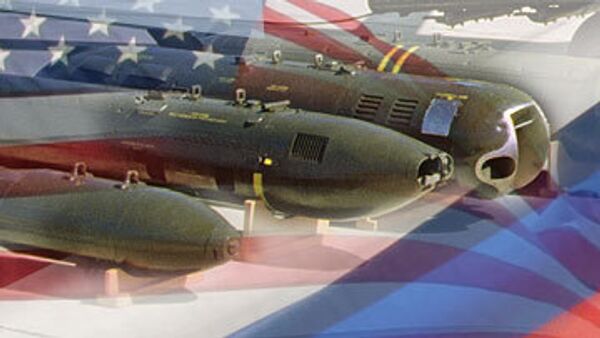Presidents Barack Obama and Dmitry Medvedev met on December 18 on the sidelines of the climate change summit in Copenhagen to discuss nuclear reductions.
However, this discussion proved no more successful than the climate change conference proper, as the two heads of state emerged from the talks saying almost in chorus that they still needed to finalize technical details. In diplomatic code, this usually means there are serious predicaments hampering an agreement.
In this case, there are problems with the verification regime. In any case, a new START treaty is unlikely to be signed in Copenhagen or before yearend at all. The negotiators are already on holiday and will not meet until mid-January. Therefore, the presidential agreement can only be finalized next year and not necessarily soon.
To sign a new START treaty is not a goal in itself and will not resolve all the current nuclear issues, despite the high hopes voiced by the media and PR professionals serving the Russian and U.S. government agencies.
The document will certainly have symbolic significance, primarily for the two presidents: it will be Medvedev's first disarmament treaty and will score a point for Obama the Nobel Peace Prize laureate. A new START treaty to his credit would give him something to talk about and justify advance fees for a Nobel.
It would also give the U.S.-Russian "resetting" process the momentum it seems to need - it would be a sign that they have finally reached and pressed the desired button.
That the treaty will be signed sooner or later is obvious (most likely in 2010). But the document alone, although a good beginning for a new nuclear disarmament effort, will mean nothing without follow-through.
First, this is not even the most drastic nuclear reduction in history. The United States and Russia have reportedly agreed to cut the number of strategic nuclear warheads to around 1,600. The number of carriers will be cut to 700-750. The United States and Russia have clearly compromised here, as earlier Washington refused to take the limit below 1,000 while Russia refused to raise it above 500, and had a good reason to do so.
The problem is that the service life of Russian missiles is forcing the Defense Ministry to gradually remove submarines, strategic bombers and missiles from service. This means that by 2017 - the planned expiration date of the new START treaty - Russia will have a little over 500 carriers at best anyway. Russia could have even less than that, unless the defense industry urgently concentrates on building new missiles while neglecting all other projects. Since this is highly unlikely, Russia will probably "exceed" the limitation on carriers.
So Obama must indeed be given credit for meeting Russia halfway on this issue. Moreover, the United States also agreed to consider B-52 bombers strategic nuclear carriers, whether or not they carry nuclear warheads, and Topol-M mobile missile systems will now be allowed to be deployed anywhere in Russia, which was not the case in START-1.
As of today, the United States has 1,195 carriers and 5,573 warheads, while Russia has 811 carriers and 3,906 charges. George W. Bush and Vladimir Putin signed a reduction agreement in 2002 in Moscow. Under that agreement, which has not expired, the two countries must reduce their nuclear potential to 2,200-1,700 warheads by 2012.
Under the new START treaty, the number of warheads should be cut to 1,600-1,675 seven years after it comes into effect. Even if it is signed early next year, it means that by 2017, Russia will have to destroy only 25 more warheads. In other words, in 2017, we'll reach a level that we would have reached under the 2002 agreement signed by George W. Bush, the president who is widely accused (in America as well) of bringing Russian-U.S. relations to the current low.
In any case, the revived activity around the agreement at least intensified the disarmament process, which had become sluggish during Bush's term. The question is where Moscow and Washington will move now. It is also interesting to note to what extent the START compromise is pegged to Russia's "services" in Iran and Afghanistan, as the United States wants Russia to join sanctions against Iran's nuclear ambitions and to provide "a Russian corridor" toward Afghanistan for the anti-Taliban coalition forces.
Based on U.S. newspaper reports, Obama is willing to go as far as revising return potential - meaning stockpiled warheads. Washington is also willing to discuss a tactical nuclear weapons reduction (bombers) and medium-range missiles. Incidentally, some of these ideas were proposed by Mikhail Gorbachev at a meeting with Ronald Reagan in Reykjavik in 1986.
The opinions expressed in this article are the author's and do not necessarily represent those of RIA Novosti.
MOSCOW. (RIA Novosti political commentator Andrei Fedyashin)

